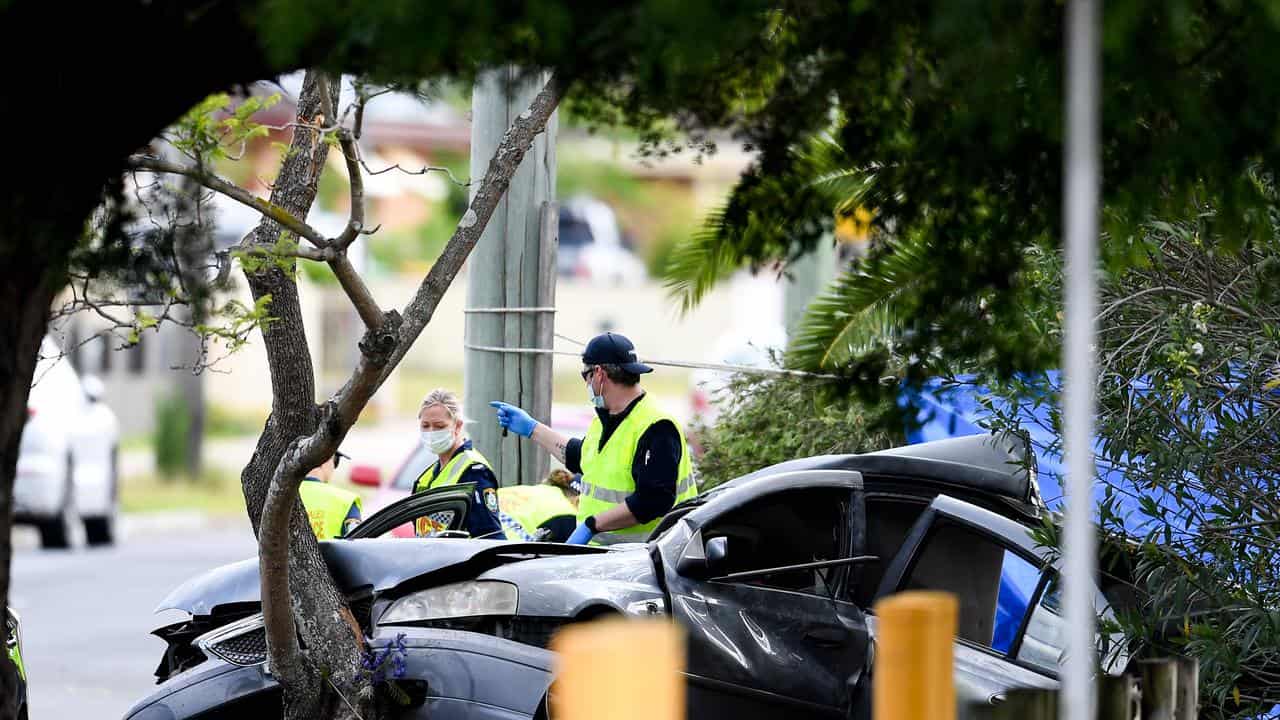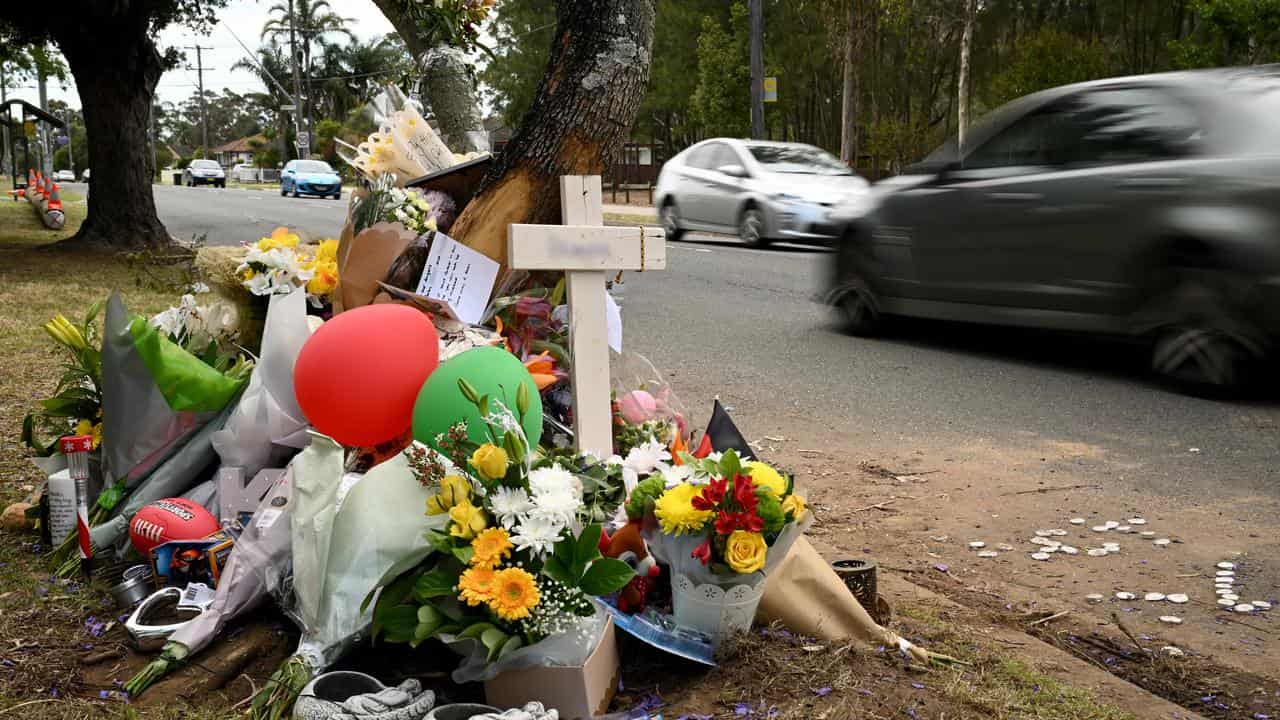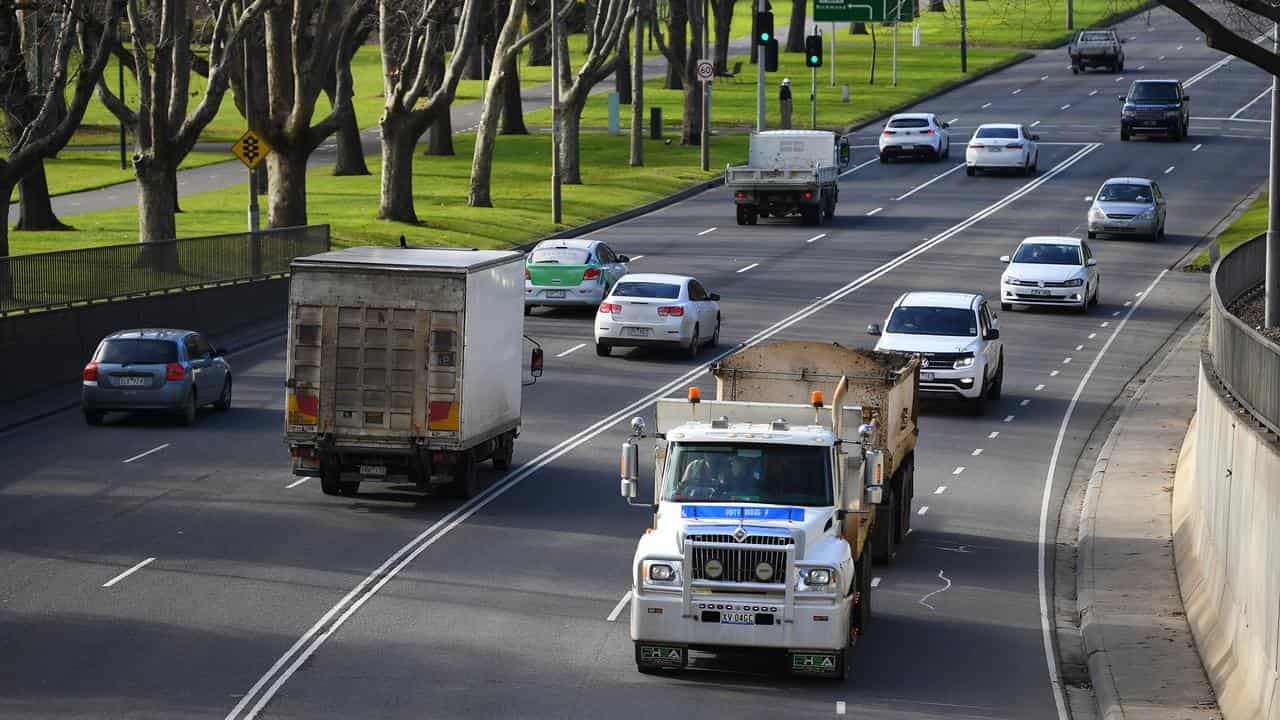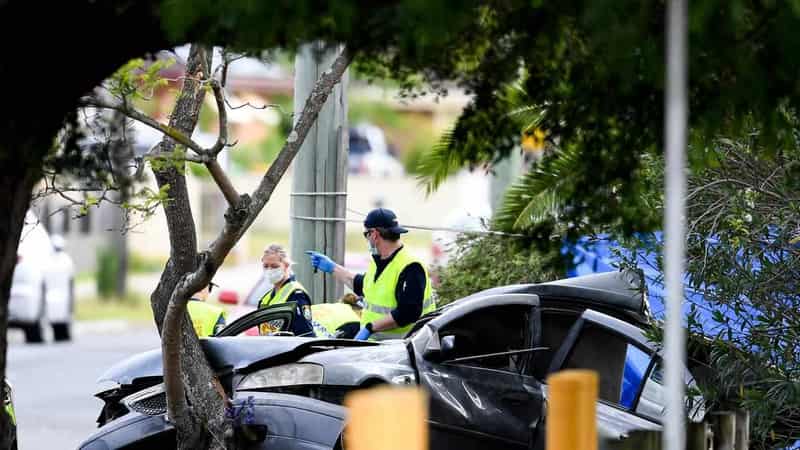
Australia's road toll is at a five-year high, prompting a plea for transparency around crash data.
Some 1253 people were killed on the nation's roads in the 12 months to November 30, the Australian Road Deaths Database shows.
It is a 6.3 per cent jump on the previous year and the highest 12-month road toll since March 2018.
South Australia recorded the biggest increase with a 61.4 per cent jump in fatalities, followed by NSW with a 23.8 per cent rise and Victoria up 14.5 per cent.

Among those killed were 10 people killed in a bus crash after a wedding in the NSW Hunter Valley, and five who died a collision outside a pub in the Victorian town of Daylesford.
Other high-profile fatalities include the death of Charlie Stevens, the son of South Australian Police Commissioner Grant Stevens, south of Adelaide.
Deadly incidents were down in all other states and territories.
The national road toll has since risen further, with NSW Health reporting 11 deaths related to road crashes since Friday.
Crucial data on the quality of roads, causes of crashes and law enforcement could help put an end to the alarming trend, according to the Australian Automobile Association.
But the peak body for motoring clubs says states and territories have not released enough information.
“Month after month, road deaths keep rising and we lack the information needed to identify the reasons for this deadly trend and to develop the most effective measures for reducing crashes," the association's managing director Michael Bradley said.
He accused transport ministers of kicking safety reforms "down the road" after no commitment was made to release the information at a recent meeting, and hopes that will change in 2024.

"Until this reform is implemented, we will not be able to identify the reasons for rising road deaths and develop the most effective measures for reducing crashes," Mr Bradley said.
Peter Fraser of Safer Australian Roads and Highways founded the group after his daughter Sarah died in a collision in 2012 in an emergency lane.
He fears not enough has been done since then to reduce the road toll, such as ensuring all infrastructure meets safety specifications.
"We haven't actually improved over the course of the last 10 years," Mr Fraser told Seven's Sunrise program on Monday.
"We have to start to convince both levels of government that we can take action as individuals."
Federal Transport Minister Catherine King called on drivers, bike riders and pedestrians to take care over the summer break.
"This season should be filled with joy, not sorrow," Ms King said.
“Deaths are not just a statistic; they are someone's parent, sibling, colleague, or cherished friend.
“So please take it easy on the roads and remember that road safety is a shared responsibility.”
The Rural Doctors Association also pleaded with motorists to drive safely.
“Unfortunately, as rural doctors, we see far too many victims of road accidents, which nearly always could have been prevented by the driver going a little slower, staying focused, and showing patience behind the steering wheel,” president Raymond Lewandowski said.
“It is incredibly saddening when we see families who were on their way to a long-awaited holiday catch-up with friends or family, or on their way back home from one, but instead are at the hospital either being treated for injuries or waiting for news on whether a loved one has survived."
ROAD TOLL FACTBOX, 12 MONTHS TO NOVEMBER 30, 2023
* AUST - 1253, up 6.3 per cent
* NSW - 354, up 23.8 per cent
* VIC - 285, up 14.5 per cent
* SA - 113, up 61.4 per cent
* QLD - 279, down 1.8 per cent
* WA - 161, down 2.4 per cent
* TAS - 30, down 44.4 per cent
* NT - 28, down 45.1 per cent
* ACT - 3, down 85 per cent









